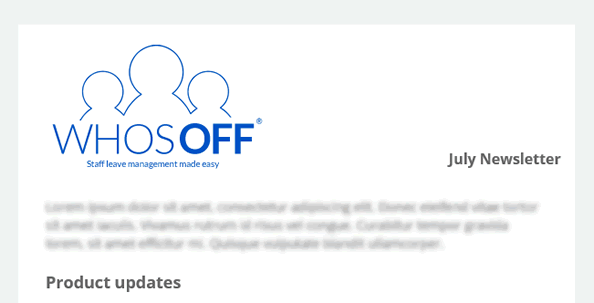The European Court of Justice has made a landmark ruling on employees’ rights to carry over annual leave, and whether workers should be paid for holiday they haven’t taken in previous years when their employment ends. Let’s take a look at this ruling, and the impact it could potentially have on your business if you don’t make your company policies clear enough.
The test case: Shimizu vs. Max-Planck
The catalyst for this recent clarification is a landmark case between employee Tetsuji Shimizu and German scientific institution, the Max-Planck-Gesellschaft.
Mr Shimizu was a fixed-term contract worker; shortly before his contract ended in December 2013, he was invited by Max-Planck to use up the significant volume of annual leave he had amassed during his tenure.
Despite having accrued more than 50 days’ annual leave since the start of his role in 2012, Tetsuji only took two days off during his notice period, instead asking Max-Planck to pay him in lieu of the rest – amounting to almost €12,000. A disagreement between the two parties over whether he should be paid the full amount resulted in his case being reviewed by the German Federal Labour Court.
European regulations overrule national conventions
While paying staff in lieu of untaken holiday when they leave a role is standard practice in Germany, this only applies to leave accrued during the calendar year. Max-Planck argued that workers’ rights to use that leave, or be paid for it, lapse at the end of the year, and cannot be carried forward.
However, unsure whether this arrangement was consistent with EU legislation – particularly the Working Time Directive – the German Federal Labour Court referred Mr Shimizu’s case to the European Court of Justice (ECJ), who ruled that EU regulations overrule national law.
As a result, employees should not automatically lose their right to carry over annual leave to the next calendar year, without first being assessed to see whether they had a genuine opportunity to take that leave. Therefore, if Tetsuji was not properly warned that Max-Planck had a ‘use it or lose it’ policy, he could be liable to receive payment for the total number of accrued days since the start of his contract.
The consequences for employers
The biggest impact of this ruling is that the responsibility for clarifying annual leave policies is placed firmly on the employer, rather than the employee. Businesses must ensure that your employees are in a position to take their full annual leave entitlement before the end of the year and encourage them to utilise their allowance within the time frame. This education process is particularly important for companies where there is a culture of workers not taking holiday, or feeling pressured not to use their full entitlement by other team members. If your firm employs fixed-term contract workers as well as permanent employees, you have a duty of care to ensure these protocols apply to them as well.
Equally, organisations need to make your policy on carrying holiday over to the next year clear to all employees. If you do not allow any holiday to be transferred, this should be pointed out when new staff join at the time, and you should remind the entire workforce 2-3 months before the end of the holiday year, so they have ample time to use any remaining days.
If employers allow holiday to be carried over under certain circumstances then you should outline that criteria, ensuring that all team members understand the process for applying to transfer leave so their requests are approved in a timely manner. Additionally, if there is a limit to the number of days that can be carried over, you should make this clear too.
Make it easier to manage carry-over
Making sure that workers use up their holiday allowance before the end of the year should be simple, but many companies struggle to keep tabs on exactly how many days each employee has taken – as they are managing staff leave through a word document or spreadsheet.
Leave management software can simplify and speed up this process, easily letting administrators input the holiday entitlement for each employee – including part-time staff and contract workers – and logging how many days off they’ve taken through a central online dashboard.
Not only that, a good solution will be able to process requests to carry over holiday to the next calendar year, adding these extra days onto workers’ total allowances, and setting deadlines if they need to be used by the end of the year.
WhosOff automatically tracks staff leave, including transferring days from previous holiday allocations, so you never get caught out again. Get a free trial to see how WhosOff can improve the way you co-ordinate employees’ time off.
Photo by Brett Sayles from Pexels

